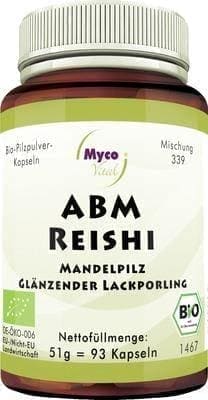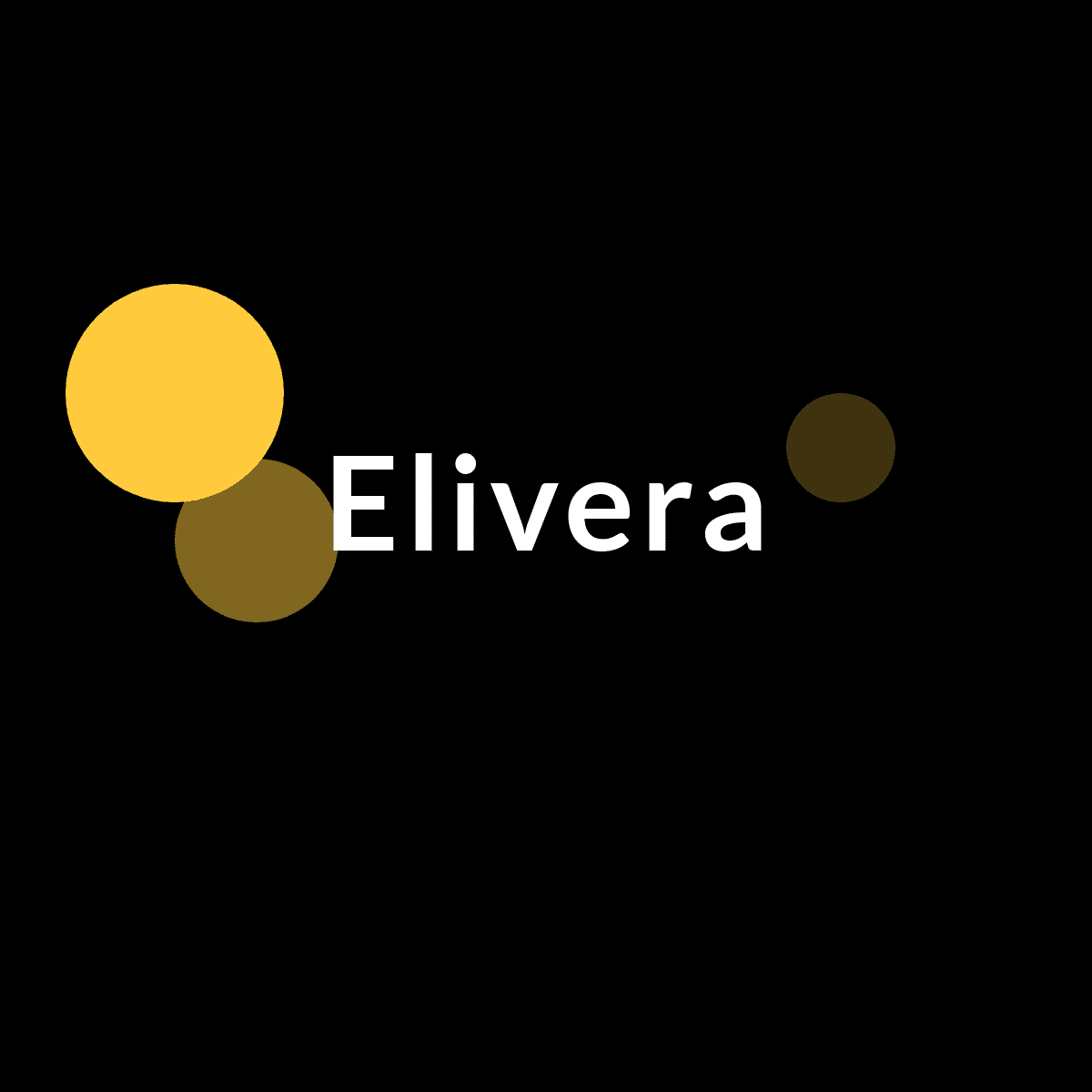MycoVital medicinal mushrooms GmbH
ABM REISHI mushroom powder capsules organic 93 pc
ABM REISHI mushroom powder capsules organic 93 pc
Couldn't load pickup availability
ABM REISHI mushroom Ingredients:
• Almond mushroom (Agaricus blazei murill) powder *,
• Shiny Lackporling (Ganoderma lucidum) powder *,
• Hydroxypropylmethylcellulose (HPMC) capsules
* from organic farming. German agriculture
The cultivation and processing into mushroom powder capsules takes place entirely and exclusively in our company in Limeshain, Germany. The ripe, freshly harvested mushroom is dried immediately after harvest in our special, gentle drying process, gently ground to powder with a water-cooled mill and filled into HPMC capsules. There is no intermediate storage (e.g. in a cold store). Through the immediate, fast and gentle processing, we guarantee that all important ingredients are retained and that the fungus does not lose its natural, useful properties for human nutrition. Millet may be included.
ABM REISHI mushroom Recommended
intake : 1 capsule 3 times a day with meals with plenty of liquid.
Keep the product protected from light, locked and out of the reach of small children. Protect from heat and store in a dry place. During pregnancy and breastfeeding, a doctor should generally be consulted before consumption.
Net quantity ABM REISHI mushroom:
93 capsules = 51 g (550 mg / capsule).
Reishi mushroom benefits
1. Boost the Immune System
One of the most important effects of the reishi mushroom is that it can boost your immune system.
While some details are still uncertain, test-tube studies have shown that reishi can affect the genes in white blood cells, which are critical parts of your immune system.
What’s more, these studies have found that some forms of reishi may alter inflammation pathways in white blood cells.
Research in cancer patients has shown that some of the molecules found in the mushroom can increase the activity of a type of white blood cell called natural killer cells.
Natural killer cells fight infections and cancer in the body
Another study found that reishi can increase the number of other white blood cells (lymphocytes) in those with colorectal cancer.
Although most immune system benefits of reishi mushroom have been seen in those who are ill, some evidence has shown that it can help healthy people, too.
In one study, the fungus improved lymphocyte function, which helps fight infections and cancer, in athletes exposed to stressful conditions.
However, other research in healthy adults showed no improvement in immune function or inflammation after 4 weeks of taking reishi extract.
Overall, it is clear that reishi impacts white blood cells and immune function. More research is needed to determine the extent of the benefits in the healthy and ill.
Reishi mushroom can enhance immune function through its effects on white blood cells, which help fight infection and cancer. This may occur primarily in those who are ill, as mixed results have been seen in those who are healthy.
2. Anti-Cancer Properties
Many people consume this fungus due to its potential cancer-fighting properties.
In fact, one study of over 4,000 breast cancer survivors found that around 59% consumed reishi mushroom.
Additionally, several test-tube studies have shown that it can lead to the death of cancer cells.
Yet the results of these studies do not necessarily equate to effectiveness in animals or humans.
Some research has investigated if reishi could be beneficial for prostate cancer due to its effects on the hormone testosterone.
While one case study showed that molecules found in this mushroom may reverse prostate cancer in humans, a larger follow-up study did not support these findings.
Reishi mushroom has also been studied for its role in preventing or fighting colorectal cancer.
Some research showed that one year of treatment with reishi decreased the number and size of tumors in the large intestine.
What’s more, a detailed report of multiple studies indicated that the mushroom can beneficially affect cancer patients.
These benefits included increasing the activity of the body’s white blood cells, which help fight cancer, and improving quality of life in cancer patients.
However, researchers state that reishi should be administered in combination with traditional treatment rather than replacing it.
What’s more, many of the studies of reishi mushroom and cancer were not high-quality. Because of this, much more research is needed.
Although reishi mushroom appears to hold some promise for cancer prevention or treatment, more information is needed before it becomes part of standard therapy. However, it may be appropriate to use in addition to normal care in some cases.
3. Could Fight Fatigue and Depression
Reishi’s effects on the immune system are often most emphasized, but it has other potential advantages as well.
These include reduced fatigue and depression, as well as improved quality of life.
One study examined its effects in 132 people with neurasthenia, a poorly defined condition associated with aches, pains, dizziness, headaches and irritability.
The researchers found that fatigue was reduced and well-being was improved after 8 weeks of taking the supplements.
Another study found that fatigue was reduced and quality of life was improved after 4 weeks of taking reishi powder in a group of 48 breast cancer survivors.
What’s more, the people in the study also experienced less anxiety and depression.
While reishi mushroom may hold promise for people with certain diseases or illnesses, it is not clear if it would benefit those who are otherwise healthy.
Some preliminary studies have shown that reishi mushroom could decrease anxiety and depression as well as improve quality of life in those with certain medical conditions.
In addition to its effects on the immune system and quality of life, reishi mushroom has been studied for its potential to improve other aspects of health.
4. Heart Health
One 12-week study of 26 people showed that reishi mushroom may increase “good” HDL cholesterol and decrease triglycerides.
However, other research in healthy adults showed no improvement in these heart disease risk factors.
Moreover, a large analysis demonstrated no beneficial effects for heart health after examining five different studies containing around 400 people. The researchers found that consuming reishi mushroom for up to 16 weeks did not improve cholesterol.
Overall, more research is needed in regard to reishi mushrooms and heart health.
5. Blood Sugar Control
Several studies have indicated that molecules found in the reishi mushroom can decrease blood sugar in animals.
Some preliminary research in humans reported similar findings.
However, the majority of research has not supported this benefit. After evaluating hundreds of participants, researchers found no benefits for fasting blood sugar.
Mixed results were seen for blood sugar after meals. In some cases, reishi mushroom lowered blood sugar, but in other cases, it was worse than a placebo.
Again, more research is needed here as well.
6. Antioxidant Status
Antioxidants are molecules that can help prevent damage to your cells.
Because of this important function, there is substantial interest in foods and supplements that can enhance antioxidant status in the body.
Many claim that reishi mushroom is effective for this purpose.
However, several studies have found no change in the levels of two important antioxidant enzymes in the blood after consuming the fungus for 4 to 12 weeks.
A small amount of research has shown that reishi mushroom could improve good cholesterol or blood sugar. However, the majority of the research indicates that it does not improve cholesterol, blood sugar or antioxidants in the body.
Dosage Recommendations Vary Based on the Form Used
Unlike some foods or supplements, the dose of reishi mushroom can vary substantially based on which type is used.
The highest doses are seen when someone consumes the mushroom itself. In these cases, doses may range from 25 to 100 grams, depending on the size of the mushroom.
Commonly, a dried extract of the mushroom is used instead. In these cases, the dose is approximately 10 times less than when the mushroom itself is consumed.
For example, 50 grams of reishi mushroom itself may be comparable to approximately 5 grams of the mushroom extract. Doses of the mushroom extract vary but typically range from approximately 1.5 to 9 grams per day.
Additionally, some supplements use only certain portions of the extract. In these cases, the recommended doses may be much lower than the values reported above.
Because the suggested dose can vary widely based on which form of the mushroom is used, it is very important to know which type you are taking.
The dose of reishi mushroom varies based on the form of the fungus, so it is important to know which form you are using. Consuming the mushroom itself provides higher doses, while extracts provide lower doses.
Possible Side Effects and Dangers
Despite its popularity, there are those who have questioned the safety of reishi mushroom.
Some research found that those who took reishi mushroom for 4 months were almost two times as likely to experience a side effect as those taking a placebo.
However, these effects were minor and included a slightly increased risk of upset stomach or digestive distress. No adverse effects on liver health were reported.
Other research also indicated that four weeks of taking reishi mushroom extract did not produce any detrimental effects on the liver or kidneys in healthy adults.
In contrast to these reports, significant liver problems have been reported in two case studies.
Both of the people in the case studies had previously used reishi mushroom without problems but experienced adverse effects after switching to a powdered form.
This makes it difficult to know for certain if the mushroom itself was responsible for the observed liver damage or if there were problems with the powdered extract.
It is also important to note that many studies of reishi mushroom have not reported safety data, so limited information is available overall.
Nevertheless, there are several groups of people who should probably avoid reishi.
These include those who are pregnant or breastfeeding, have a blood disorder, will be undergoing surgery or have low blood pressure.
Some studies of reishi mushroom have not provided safety information, but others have reported that several months of taking it is likely safe. Nonetheless, several cases of severe liver damage have been associated with reishi extract.
Reishi mushroom is a popular fungus used in Eastern medicine.
It may boost the immune system through its effects on white blood cells, particularly in people who are ill, such as those with cancer.
This fungus may also be able to decrease the size and number of tumors in certain types of cancer, as well as improve quality of life for some cancer patients.
Most human research has shown that it does not improve cholesterol, blood sugar or antioxidants, but it may be effective at reducing fatigue or depression in some cases.
Materials
Materials
Shipping & Returns
Shipping & Returns
Dimensions
Dimensions
Care Instructions
Care Instructions


